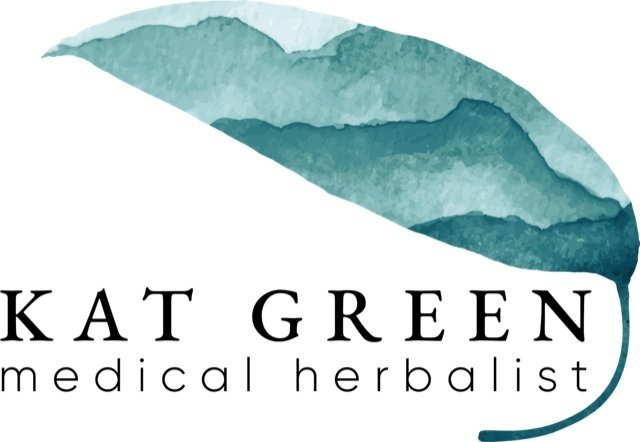why see a herbalist?
There are many reasons why people turn to herbalists. You may be looking for a gentler, natural way to manage your health - or you may have been struggling with an unresolved health issue for years. In our consultation, I hear your story with time to look beyond the symptom and understand the ‘whole you.’ Unravelling the root cause, rather than solely treating the symptom, enables us to avoid harsher interventions. While some remedies may be familiar, herbalists also have access to practitioner-only herbs reserved for the appropriate situation. Ultimately, we’re looking to work with the body and solve for the longer term, rather than fight the symptoms for short-term relief.
the whole picture.
Herbalists recognise that our body systems are interconnected; one affects the other. Also, our emotional health affects our physical health and vice versa. That’s why I’ll take a holistic view of past and present health challenges, consider how your constitution may play a role - and join the dots to highlight underlying issues. This way we have a clearer picture of what might be going on, and why. For example, it’s not uncommon for poor gut health to result in skin conditions.
multi-factorial approach and root cause.
Chronic illness has many contributing factors making it important to unravel the various root causes on which to base treatment on. Whether it’s an emotional component associated with irritable bowel syndrome or food intolerances playing into autoimmune conditions, the herbal medicine approach is thorough in identifying and emphasising all factors for treatment. Herbal medicine is suited to treat a range of issues such as indigestion and reflux, irritable bowel syndrome, SIBO, inflammatory bowel disease, infections, constipation, haemorrhoids, hormone imbalances including thyroid, peri-menopause, menopause, menstrual issues, infertility, PMS, irregular periods, PCOS, endometriosis, stress, anxiety and insomnia, chronic migraines and headaches, allergy and hay fever, osteoarthritis, rheumatoid arthritis, respiratory and cardiovascular issues, autoimmune conditions including psoriasis, eczema, skin infections and urinary tract infections.
my issue not recognised.
Our bodies tell us when something is out of balance, even when the tests come back normal. Blood tests are a good example; what’s ‘normal’ may not be optimal if the results are just ‘in-range’ or at the upper or lower end of the laboratory range. Also, blood tests are not always conclusive, which is why we should listen to our bodies. Skilful questioning and joining dots in your health picture are key to feeling better. It also helps us understand how we became unwell. Taking action ensures the problem is nipped in the bud before harsh interventions are needed.
Conventional medications focus on reducing symptoms for people but may miss some underlying root causes to be addressed for recovery. If you feel frustrated by incomplete or unsuccessful treatments, herbal medicine may be for you.
practitioner-only medicines.
Most conditions can be treated with non-restricted herbal medicine. The most ubiquitous plants have astounding qualities. Yarrow, chamomile and nettle are abundant and provide effective treatments. But registered herbalists can also call upon schedule 20 herbs, if the situation requires it. The use of these herbs is restricted to herbal practitioners by the MHRA (Medicines and Healthcare Products Regulatory Agency). That’s why registered herbal practitioners have a minimum of 500 hours of clinical training with a variety of patients.
quality herbal medicines.
A range of over-the-counter herbal products are available to us when we need them. Though, it’s important to recognise that the quality of herbal products can vary greatly. The dose set on shop-bought products may be the safest dose for most people, not necessarily the appropriate dose for the individual. Medical herbalists are trained extensively in plant chemistry and know what constitutes a therapeutic product. With this knowledge and expertise, registered herbalists are able to prescribe appropriate doses for the individual, in a therapeutic preparation while remaining safe for the patient. Specialist suppliers serve the medical herbalist community directly.
Unique for you.
Everyone is unique. This requires tailored therapeutic aims and prescriptions. A variety of herbs, usually 5 - 10 in a prescription, are chosen to act on different tissues or systems in the body. To illustrate the point, the herbs and strategies used to help someone with constipation will vary depending on whether the constipation stems from diet, inactivity, emotional tension, metabolic issues, dehydration or reduced motility (muscle function in your digestive system).







